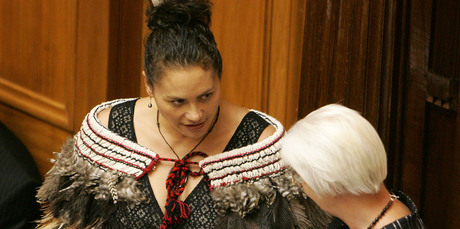By Mark O’Brien
Impunity Watch Reporter, North America
GUATEMALA CITY, Guatemala — A commission dedicated to fighting impunity in Guatemala presented a new strategy to the United Nations on Thursday.

The International Commission against Impunity in Guatemala, known by the Spanish-language acronym CICIG, identified four focus areas. Commissioner Francisco Javier Dall’Anese Ruiz, alongside Guatemalan Vice President Roxana Baldetti, announced efforts to reduce impunity rates, boost anti-crime measures, stop illegal security forces, and educate people about the threats impunity poses on democracy.
The plans came one week after a United Nations independent expert warned that many Guatemalan children are victims of sexual exploitation and forced labor, despite the government’s protection measures.
“The phenomenon of sexually exploited girls in prostitution is very worrying, “said Najay Maalia M’jid, the Special Rapporteur on child trafficking, in a press release on Aug. 29.
Last month, a Guatemalan police officer was arrested and charged with using a 14-year-old as a sex slave. Fox News Latino reported that about two-thirds of the 318 sexual violence reports were minors, according to the country’s human rights office.
“The strengthening of institutions that are tasked to implement, coordinate, and evaluate prevention and protection strategies for children should take advantage of the continued technical assistance of the United Nations and the international community,” Maala M’jid added.
There was no indication that Thursday’s announcement by CICIG that its four-focus plan was a product of Maala M’jid’s recommendation. But UN Assistant Secretary-General for Political Affairs Oscar Fernandez-Taranco said UN leaders greatly values the commission’s work and deserves strong support from the international community.
The United Nations helped establish CICIG in 2006 with the Guatemalan government. The goal was to create an independent body to help prosecutors, police, and other agencies investigate an illegal security organizations and dismantle them. In its press release this week, CICIG said its efforts have led to more than 130 people being charged.
The list of Guatemalan dignitaries at Thursday’s announcement included Commissioner Ruiz, Vice President Baldetti, Supreme Court of Justice President Thelma Aldana, President of Congress Gudy Rivera, Attorney General Claudia Paz y Paz, and Minister of the Interior Mauricio Lopez Bonilla.
For further information, please see:
The Commission against Impunity in Guatemala — Commissioner Presents CICIG’s 2012-2013 Work Plan at UN Headquarters — 6 September 2012
The Guatemala Times — CICIG’s 2012-2013 Work Plan Presented at UN Headquarters Today — 6 September 2012
UN News Centre — UN-backed Commission Presents Plan to Fight Impunity in Guatemala — 6 September 2012
UN News Centre — Many Children in Guatemala Still Facing Sexual Exploitation, Forced Labour – UN Expert — 30 August 2012
Fox News Latino — Guatemalan Cop Accused of Holding Teen as Sex Slave — 17 August 2012


